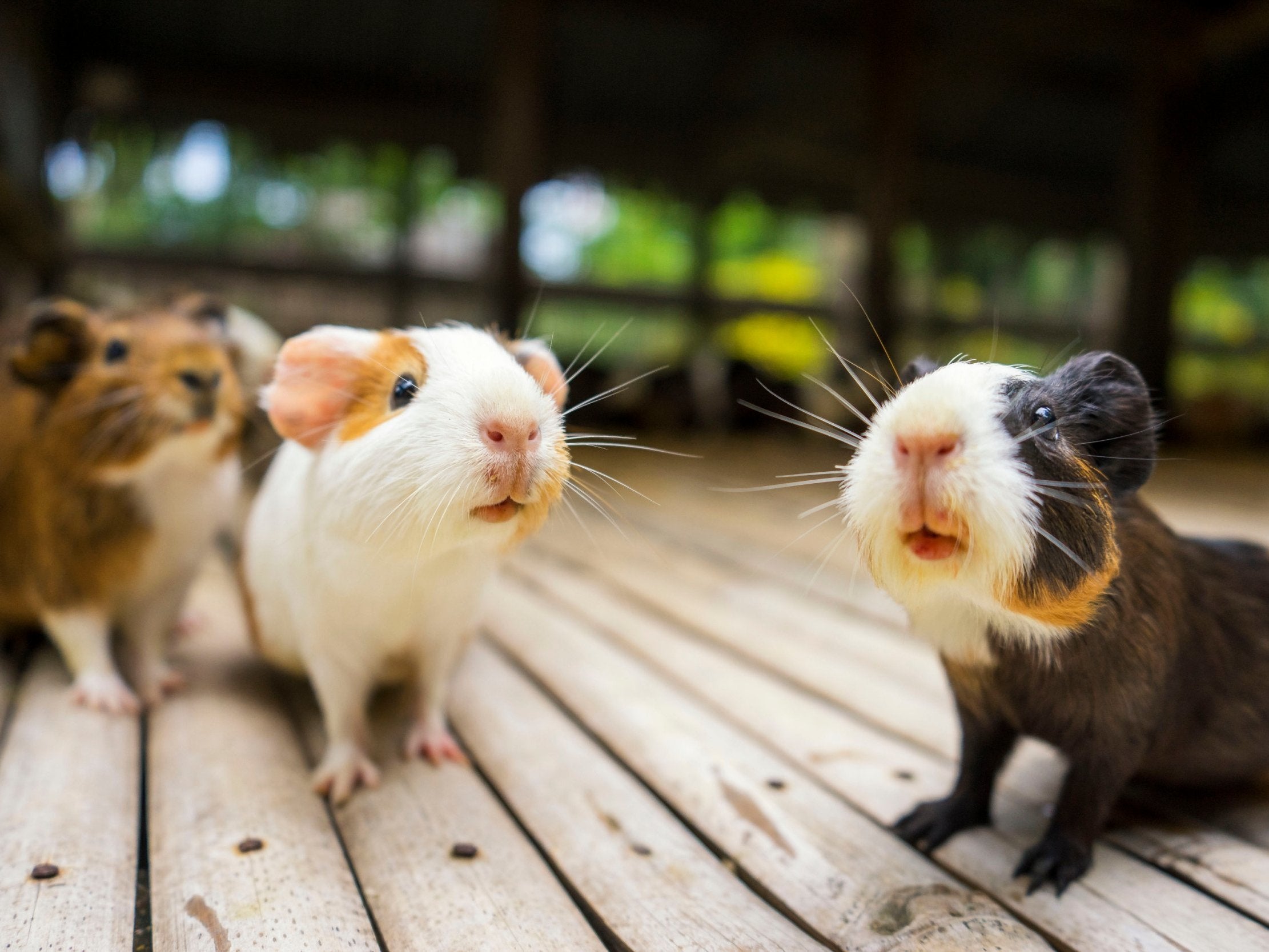‘She massaged the inside of my nostrils’: The bizarre world of modern wellness treatments
‘Wellness’ has been around for 300 years but it’s never been so expensive or bizarre. From silk eye-serums to guinea pig rubs, Christine Manby explores the numerous paths to health, wealth and happiness


What does “wellness” mean to you? Avocado toast and sunsets on Instagram? Fitbits and mindfulness apps? Maybe it’s a silk eye-serum formulated according to the ancient art of numerology, as offered by the Duchess of Sussex’s favourite London wellness centre Ilapothecary? Goat yoga? Or how about a guinea pig facial rub?
I wish I’d made that up, but in the Andes guinea pigs have been used in the manner of foam rollers to detect illness for centuries. Practitioners are trained to interpret the guinea pig’s squeaks as the poor thing is rubbed over your belly. It’s a matter of time before it comes to Notting Hill.
Though it sounds very millennial, the term “wellness” has been with us since the 17th century, when it simply meant the opposite of “illness”. These days it’s defined by the Oxford Dictionary as “the state of being in good health, especially as an actively pursued goal”.
Whatever it is, wellness is certainly expensive. The most important aspect of any modern wellness related activity seems to be that it has to cost a bomb. An email just popped into my in-box trumpeting the wisdom of a nutritionist / blogger who claims to spend £263 a month on “wellbeing”. Her wellness expenses include gym membership, “healthy” eating out, nutritional supplements, and home-applied face masks at £7 a pop.
They both look great but they’re also only 30. When I was 30, I could spend £263 a month on chip butties and still manage to stay glowing and slim
But following her down the rabbit hole of links, it seems this particular blogger is actually being quite frugal. A make-up artist spends £130 a month on “gong meditation” – which sounds more irritating than relaxing to me – and “flotation” – which sounds like a fancy name for a bath. They both look great but they’re also only 30. When I was 30, I could spend £263 a month on chip butties and still manage to stay glowing and slim.
Nevertheless, there are people who think that a $300 heated diamond massage (available at most Trump hotels) is money well spent and wellness bloggers are making out like bandits, earning seven figure fortunes from flogging their own brands of moonlight charged water.
Wellness is big business. In 2018, the wellness industry, encompassing healthy eating and nutritional supplements, fitness, personal care and beauty, was estimated to be worth some $4.2 trillion (£3.2 trillion). That represents more than 5 per cent of global economic output. To give you a comparison, the old school pharmaceutical industry was worth only $1.11 trillion in the same year. Pass the astrologically appropriate aromatherapy salts.
But what if – unlike the Duchess of Sussex – you can’t even afford £15 for an Ilapothecary express lip balm formulated, in numerology terms, in vibration with the number O. “The mother of existence… the number of the universe itself and all about expressing yourself and what you represent.” Is wellness out of reach? Are we destined for a society in which wellness is a status symbol and the privilege of those who can afford it, as is increasingly the case with common or garden “health”?

Many years ago, freaked out by an impending deadline on a half-finished novel, I forked out for a shirodhara head massage, which involved staying dead still while a stream of oil was poured on to a spot in the middle of my forehead. The treatment was supposed to release stress and help me sleep. I spent the duration of the treatment itself – half an excruciating hour – worrying that if I moved even a millimetre, I’d end up with oil in my eyes. Afterwards, I had shoulder muscles so tense you could have bounced rocks off them and a big red blotch just above my brows that persisted for half a day. I suppose worrying that it would never fade at least took my mind off the novel for a while.
I wish I could say that was the last time I wasted money on a wellness experiment that left me feeling more conned than calm. I still blanch when I remember the time I allowed a beauty therapist in LA to massage the inside of my nostrils to help with my abandonment issues. Needless to say it did nothing for my issues or my sinuses.
Meanwhile, my bathroom cabinet is full of expensive crystal-infused facial moisturisers that I now use to condition old handbags. My book shelf is full of inspirational books that promise the only thing standing between me and great riches is my habit of buying books that promise the only thing standing between me and great riches is… you know what I mean.
I’ve fallen for the snake oil salesmen again and again yet I’ve known for years that, in accordance with the old cliche, the things that really make me feel full of wellness are actually free.

Once this feature is written, I’m going for a walk – the simplest and cheapest wellness booster I know. Taking a walk could not be easier. There’s no need for special kit – though obviously the comfier your shoes feel, the longer you’ll be able to keep going. You don’t have to pay to go somewhere specific to do it. I’ll be doing a circuit to the supermarket and back. Walking fits easily into just about anyone’s day. You don’t have to do that much of it either.
A recent study by Dr Bo Xi of the department of Epidemiology and Health Statistics at Shangdong University in China suggests that even a 10-minute walk a week can significantly reduce the chance of an early death.
Going outside when it’s wet and grey isn’t always the most enticing prospect but every time I return from a walk, feeling lighter and looser than when I set out, I understand why all the dogs of my acquaintance go bonkers with delight at the very word. In fact, if you want to ‘super-charge’ your walk, to use the wellness parlance, inviting a dog to join you has to be the best way.
Walking with a dog rather than walking alone adds the benefit of possible social interaction with other dog walkers or people like me who know the names of all the dogs on my street but none of their owners.
More than 2,000 years ago, the great Greek physician Hippocrates understood the benefits of a daily stroll. He wrote “walking is a man’s best medicine”. Good old Hippocrates had a lot to say that chimes with the modern wellness industry – of which more later – but he also advised his fellow practitioners, “sometimes give your services for nothing”.
In that spirit, in this new wellness column we’re going to be investigating ways to be happier, healthier and even wealthier that don’t cost the earth figuratively or literally (I’m looking at you, avocados). That don’t require you to somehow find an extra hour in the day. And that definitely don’t involve the exploitation of small furry rodents….
That squeak doesn’t mean you’ve got psychically transmitted impetigo, it means your guinea pig massage therapist is squeezing too hard. Put the guinea pig on a lead and go for a walk instead.
Join our commenting forum
Join thought-provoking conversations, follow other Independent readers and see their replies
Comments